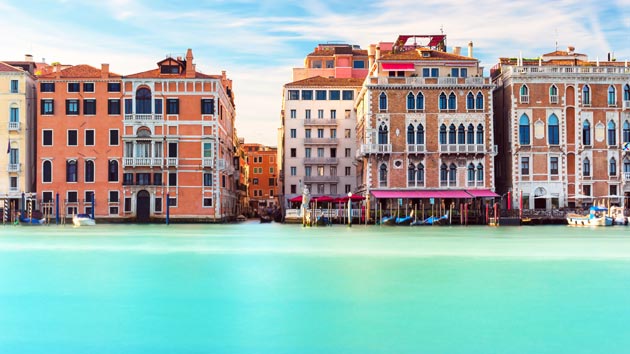The Italian way of life for expats

With its captivating history and generous culture, Italy is a popular destination for expats. The Mediterranean climate and close proximity to the UK means that British families looking for new beginnings and a fresh challenge have lots to be optimistic about with our European neighbours.
Moving to Italy requires determination, but it also takes a great deal of preparation so you can ensure a smooth transition into your lifestyle and that you have the necessary tools to cope with the challenges of moving to another country.
Before you head to Italy, it’s highly recommended that you find a job before relocating and that basic language skills are acquired so it will be easier to familiarise with your surroundings.
Before you Go
- Whether you need a visa or not to enter Italy is entirely dependent on a series of factors. Check what you and your family need to do and apply as soon as possible as it can take a few months.
- Apply for an international driving license if you need one.
- If you have pets, make sure they have vaccines and required medication.
- Prepare health and travel insurance for family members and have certificates for medical and dental examinations.
- Inform tax authorities of your move, cancel subscriptions and utilities, pay off bills, loans and redirect your post to your new address.
Visa Regulations
Living in Italy for longer than 3 months requires an Italian Residency permit which you can apply for at your local town hall or residency. You’ll then receive a certificate that allows you to live in Italy for 5 years from date of issue. After 5 years, you can apply for permanent residency.
Property
Italy has a strong rental market and most properties are let unfurnished, which is worth keeping in mind. Renting tends to account for 25 per cent of the average Italian family’s budget, but this can increase to 50 per cent in major cities. Accommodation is in high demand in larger cities which is to be expected, so expect to pay high rents. There is an abundance of properties to buy in Italy, so researching the market thoroughly should reward you with an appropriate property for your requirements.
Career Opportunities
Italy currently has shortages of skilled personal in the IT and scientific sectors, so expats with skills in these areas may find it easier to secure employment. However, an economic slowdown has led to a relatively high unemployment rate at around 12%, especially in Southern regions which experience higher unemployment. Youth unemployment is an acute problem, with around 30% of people under 25 unemployed. Short contracts are favoured by companies, as a lot of businesses have recruitment bans in place.
There are still a range of multinational corporations that will have offices in major Italian cities, so researching the market having the right skills is beneficial. Having a TEFL (Teaching English as Foreign Language) qualification is also recommended for partners who will be looking for a job, as there are lots of teaching positions available. There are also plenty of English speaking roles.
UK benefits can be claimed in specific circumstances whilst living in Italy.
Healthcare
Possessing a European Health Insurance Card(EHIC) does not cover private healthcare costs. You will need to register with the SSN (Servizio Sanitario Nazionale) which is the Italian version of the NHS which provides state funded free or low-cost health care to everyone.
When you are registered to work in Italy and make National Insurance contributions, you’ll be entitled to state-run healthcare for you and your family. Contact HMRC if you have been posted in Italy by a UK company, as you can be eligible for health cover funded by the UK in Italy.
A private healthcare insurance policy will cover medical bills that aren’t paid for by social security. If you have a policy in the UK, you may be able to extend it to cover your and your family in Italy too.
Childcare
There are free of charge state funded pre-schools and state-subsided private preschools, which can range from €100 to €500 per month depending on location. Spaces for children in city pre-schools can be limited, so preparing beforehand is advised.
State education is free for the children of expats, regardless of whether they’re registered residents. Private schools vary in quality and price and you can expect to pay between €175 and €350 per month for each child.
There is also a range of excellent International Schools where you can continue your children’s education in a British system through GCSE and A-level examinations. Fees per year range from €4,250 to €12,500. It’s very likely there will be a waiting list for better quality schools, so get in contact before you move.
If you are considering moving to Italy, Cadogan Tate will assist you every step of the way – from your first enquiry to unpacking at your new home, we are here to help and advise you. For more details about Cadogan Tate’s specialist international removals services from London, click here.



